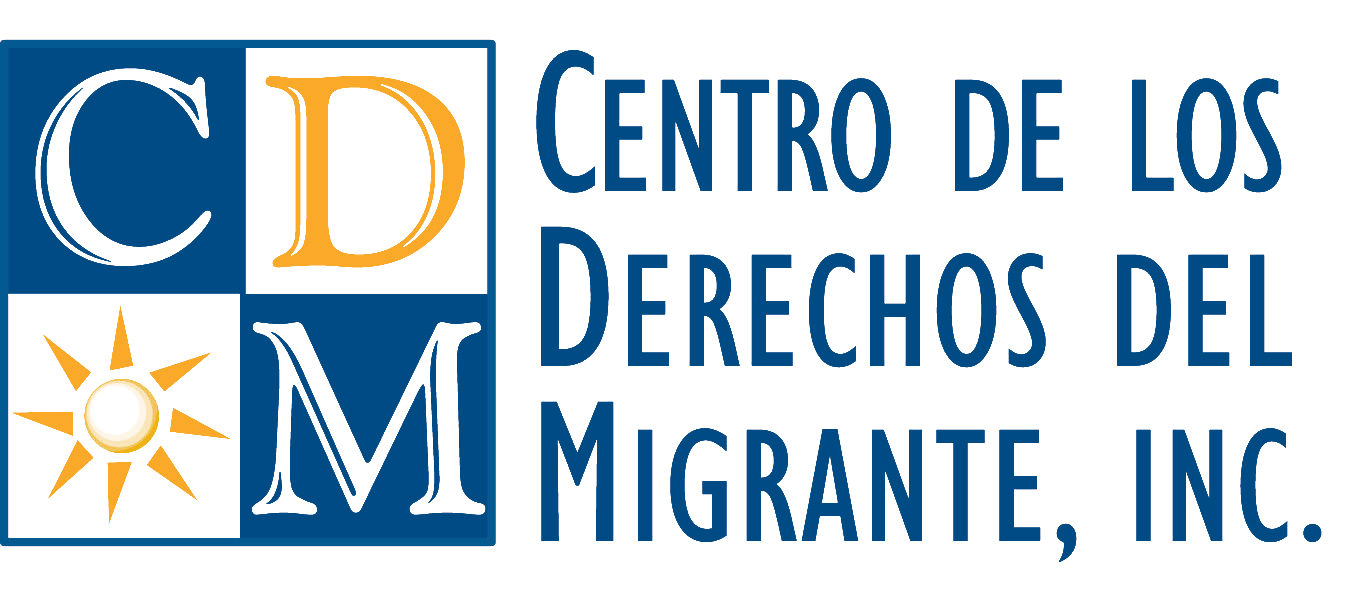Through our binational Migrant Women’s Project (Proyecto de Mujeres Migrantes, or ProMuMi), Centro de los Derechos del Migrante, Inc. (CDM) stands with migrant women in demanding equal pay, dignified work, and stronger worker protections. For years, CDM has facilitated workshops with migrant women about their rights in recruitment and employment, cultivated leadership skills, and fostered critical opportunities for migrant women to intervene in policy debates. Migrant women leaders participating in these initiatives have drawn policymakers’ attention to serious flaws in the international labor recruitment process and U.S. guestworker programs. Government agencies and lawmakers have responded, citing CDM and women leaders’ work and vision in implementing important policy reforms.
BACKGROUND
Each year, hundreds of thousands of women travel to the United States to provide essential caregiving support to families across the country, pick our produce, and keep U.S. cruise ships afloat. They work in U.S. factories, on farms, in hotels, and in private homes. These migrant women—who hail from communities across Mexico, and from other locales throughout the Global South—work long months abroad to provide for their families back home.
Too often, these women confront severe forms of discrimination and human rights violations, which begin in the recruitment process in their home communities and continue in the workplace. Migrant women are often channeled into lower-paying jobs and are cut off from more coveted jobs reserved for men. They are survivors of sexual harassment, pay discrimination, untreated work injuries, and human trafficking. They often work in industries that isolate them from social services and other workers. And although U.S. anti-discrimination, wage, and health and safety laws should protect them, those laws are often not enforced.
Research
In September 2017, CDM and the University of Pennsylvania’s Transnational Legal Clinic (TLC) released the policy brief Engendering Exploitation: Gender Inequality in U.S. Labor Migration Programs. Based on extensive research and detailed surveys of 34 women who participated in five different labor visa programs, the report highlights how the US temporary labor migration programs systematically foster discrimination against women.
Meet the women who are standing up for migrant justice
Some have experienced wage theft and misrepresentation, others discrimination and trafficking; now, 30 migrant worker women are courageously sharing their stories and are speaking out to advance gender justice.
From caregivers and management consultants to seafood processors and cruise ship workers, these women have come from around the world to work in U.S. guestworker programs. Click here to read their stories!
Huge thanks to the Transnational Law Clinic at the University of Pennsylvania Law School for your support in this project. And to every woman who has shared her story with us over the past 12 and a half years, we will continue to fight for justice side by side — your experiences and courage make us nothing short of unstoppable.
Advocacy
In Maryland, CDM leads coalition advocacy to push for the regulation of international labor recruitment to the state. Introduced in 2018, the legislation would prohibit sex discrimination in international labor recruitment to Maryland, ban recruitment fees so that “guest” workers don’t arrive indebted, and increases transparency over international labor recruitment to the state. Given that Maryland is one of the largest users of the guestworker programs and we’re seeing unprecedented expansion of these programs, which to date have fostered debt bondage and sex, age and other forms of discrimination, this bill marks an important step in providing critical protections for Maryland’s workers. The bill also requires international labor recruiters in Maryland to be licensed. If successful, Maryland may follow the path of transparency initiatives like SB 477’s recruiter registry in California in making recruiter data publicly available and strengthening Contratados.org as a critical resource to Maryland-bound migrant workers.
Story
When she was 28, Elisa left her four young children to migrate to the United States. A local recruiter had offered her a crab-picking job on Maryland’s Eastern Shore, a job that Elisa thought would allow her to better provide for her family. Because the job opportunities in her community were limited, Elisa made a difficult choice: she and her would-be coworkers paid their recruiter illegal recruitment fees, with high interest rates, in exchange for the promise of better work in the United States.
The working conditions that Elisa encountered as an H-2B worker in Maryland were far from what the recruiter had promised. Her employer forced Elisa and her coworkers to live in deplorable conditions. Elisa soon discovered that the employer was paying men higher wages and giving them more work. Sometimes weeks passed without work—or pay. Yet Elisa’s restricted mobility as an H-2B worker (whose visas bind them to a single employer) and the daunting prospect of paying off her recruitment debt and visa and travel expenses dissuaded her from leaving.
After Elisa and her coworkers approached CDM to report these conditions, we accompanied them in taking legal action against their recruitment agency and in launching a multi-faceted campaign to end recruitment abuse. In 2015, Elisa told CDM that Picked Apart: The Hidden Struggles of Migrant Worker Women in the Maryland Crab Industry, the report we developed in close collaboration with Elisa and her colleagues, along with our worker-driven policy advocacy had transformed conditions for Latina migrant workers picking crabs on Maryland’s Eastern Shore.
Now, women from Elisa’s community report no longer being charged fees for the jobs. Because these improvements did not extend to other workers being recruited in Maryland, Elisa and her colleagues are backing our state-level advocacy.

